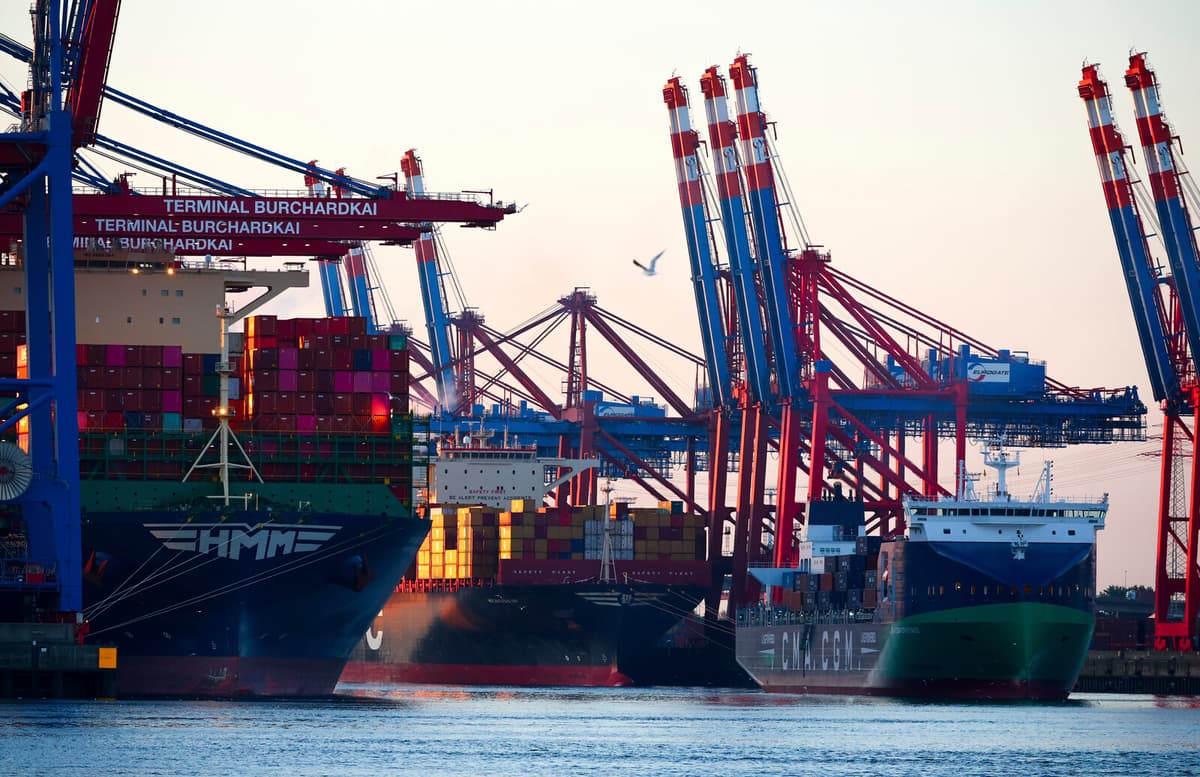Hamburg, February 2021. A cargo ship flagged in Paraguay slowly enters the harbor. The containers are supposed to contain wall filler, but something arouses the customs officers' suspicion. Soon it becomes clear that they have made Europe's largest find of cocaine: 16 tons of powder, worth nearly 40 billion kronor on the street, packaged in over 1,700 metal boxes.
But when the police strike against the suspected network behind the narcotics, they miss. The main suspects have already fled. Nor do the investigators find any large quantities of drugs, cash, or other evidence.
Three and a half years later, in October 2024, the prosecutor in the case is arrested. He is accused of leaking information about the investigation and for warning the suspects in exchange for over 50,000 kronor per month, according to the German public service broadcaster NDR.
"Infiltration" and bribes
The scandal has cast harsh light on Hamburg's role in the import of narcotics to Europe – and on the corruption that organized crime brings with it, writes the Global Initiative Against Transnational Organized Crime (GI-TOC).
We see an infiltration of the harbor infrastructure in Hamburg, bribing of police in exchange for information, and recently even a state prosecutor awaiting trial for leaking information to a cocaine smuggling network, says the organization's European chief Daniel Brombacher to The Guardian.
Getting the drugs in is almost impossible without help from the inside, according to numerous reports. The criminals need physical access to the harbor, information from IT systems about the containers' position – and people willing to turn a blind eye in exchange for money.
And South American smugglers say they have no difficulty corrupting harbor personnel in Europe, according to a recent report from the UN Office on Drugs and Crime (UNODC) as reported by German Deutsche Welle. In April, two harbor workers in Hamburg were sentenced to prison for helping to transport 480 kilos of cocaine from Ecuador to Europe. In recent months, several German police officers have also been arrested for aiding gangs, reports The Guardian.
"Cat-and-mouse game"
Hamburg's harbor workers now feel so threatened that they asked for automatic weapons last year, writes the newspaper. In an incident, Belgian police allegedly tipped off Hamburg's harbor police that an armed French gang planned to raid to take back seized narcotics.
In a campaign, Hamburg's harbor workers are warned about the gangs' recruitment methods, which often involve threats against both employees and their families. "When I didn't want to do it anymore, they sent a picture of my daughter", reads a quote in the campaign, according to Swiss Neue Zürcher Zeitung (NZZ).
We have neglected harbor security. We were probably quite naive, stated Michael Schrader, head of Hamburg's customs office, to the newspaper in May last year.
The customs officers are constantly one step behind. According to experts, probably only around one-tenth of all narcotics coming to Europe are detected.
We have to adapt quickly. It's like a cat-and-mouse game, said Schrader.
Advertisement
Astounding sums
The port of Hamburg is Germany's largest and Europe's third-largest, after Rotterdam in the Netherlands and Antwerp in Belgium. Between 2022 and 2023, seizures in Hamburg increased by 500 percent, according to German Der Spiegel.
Cocaine is extremely lucrative. The profit margin is enormous: a kilo can be sold on the street in Europe for up to fifty times more than the purchase price in South America, according to GI-TOC. The staggering sums – together with an ever-increasing demand – are driving a landslide increase in imports to Europe.
We have cocaine deliveries in quantities that would have been five or ten years ago, said narcotics investigator Oliver Erdmann at Hamburg police to Der Spiegel in October.
Germany's federal police authority has warned of a "tidal wave of cocaine. Cocaine has risen to first place among illegal drugs in Germany, said Burkhard Blienert, the government's responsible for drug issues, to Deutsche Welle last week:
"We live in uncertain times, and in these times, people are turning to drugs in increasing numbers."
Cocaine is a highly addictive central stimulant with stimulating and hunger-suppressing effects.
The drug is extracted from the leaves of the South American coca bush. The narcotic-classified powder that lands with the consumer is almost always heavily cut with various, more or less harmful substances.
The largest cocaine producers are Colombia, Peru, and Bolivia.
In line with the increasing power of criminal gangs, Ecuador, particularly the port city of Guayaquil, has become the main export port from South America. But cocaine is also trafficked via South American rivers, for example Paraná, to ports in Brazil, Argentina, and Uruguay, and from there to ports in Europe.
The largest numbers of cocaine seizures in Europe are reported from Belgium, the Netherlands, and Spain.
Cocaine raises blood pressure and can lead to heart problems, stroke, and damage to nasal tissue with repeated use.






